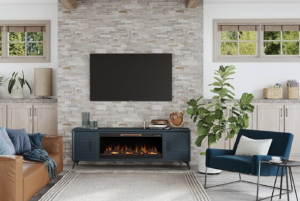
Homeowners in the US often wonder, “Does AC improve indoor air quality?”. Indoor air quality significantly impacts our health and well-being, making it crucial to ensure that we breathe clean, fresh air within our homes.
AC systems play an essential role in regulating temperature and humidity levels; however, their influence on improving or worsening indoor air quality is not always clear-cut.
This blog post will dive into the relationship between air conditioners and indoor air quality while providing useful insights into how you can optimize your cooling system for better overall respiratory health.
If you’re in need of AC repairs and don’t feel comfortable taking on the task by yourself, you should reach out to a local HVAC company that specializes in AC repairs.
You may be confused about mini splits vs central air: Which is Better? Choosing between mini splits and central air depends on your needs, budget, and preferences.
Can Air Conditioning Improve Indoor Air Quality?
A quality cooling system can regulate humidity and even purify indoor air, removing harmful bacteria and pollutants from the air.
How A Quality Cooling System Can Regulate Humidity
A high-quality air conditioning system can regulate the humidity level in your home, which is essential for maintaining good indoor air quality. Humidity control is vital because too much moisture can lead to mold growth and other harmful bacteria that affect your health.
AC units work by removing heat and moisture from the air inside your house and replacing it with cool, dry air. This process helps reduce humidity levels, preventing mold growth and keeping you comfortable in hot weather.
To ensure that your AC unit regulates humidity effectively, you need regular HVAC maintenance, including cleaning or replacing air filters every three months at minimum intervals.
Dirty filters block airflow and hinder performance, leading to preventable issues like dust mites and condensation buildup. An accumulation of buildup can cause increased relative humidity indoors, resulting in mold growth and musty smells over time.
Some AC Units Can Purify Indoor Air And Remove Harmful Bacteria
In addition to regulating the humidity, some high-quality AC units can help to purify indoor air and remove harmful bacteria. These unique systems use advanced filtration techniques and sometimes even UV light to target pollutants in the air, trapping them before they can circulate throughout your home.

By eliminating these airborne particles, you’ll be able to enjoy cleaner and healthier air quality within your living space. Of course, it’s important to note that not all air conditioning units are created equal when it comes to purification capabilities.
The Effectiveness Of AC In Removing Pollutants From The Air
Air conditioning units can help improve indoor air quality by removing pollutants from the air. However, this process’s effectiveness depends on several factors, such as the airflow rate and the filter’s efficiency.
A good AC unit should have a high airflow rate to remove airborne particles effectively.
Moreover, some modern AC units come with advanced features like air purifiers that filter out harmful bacteria and viruses from your home’s atmosphere. These ACs use powerful HEPA filters capable of filtering out even microscopic particles like allergens and pet dander that would otherwise cause respiratory issues.
Conclusion
Proper maintenance and cleaning of air filters are crucial for ensuring optimal indoor air quality, especially when using an air conditioning system that can either worsen or improve it depending on its design and functionality.
It is essential for homeowners to pay attention to the maintenance of their air conditioning system’s filters to ensure optimal indoor air quality. These filters are tasked with capturing as many airborne pollutants and allergens from the circulating air as possible, preventing them from entering your home and negatively impacting respiratory health.
Over time, these filters can become clogged with dust and debris, reducing their effectiveness significantly. As a result, it is crucial to clean or replace them regularly to maintain good indoor air quality.
Failing to maintain these AC filters will also increase energy consumption by making your cooling system work harder than necessary, while still providing subpar results when it comes to maintaining a healthy indoor environment.
To prevent this avoidable problem altogether and ensure that your family members breathe clean air indoors at all times, follow manufacturer recommendations on when you should change out filters according to use frequency and keep an eye out for any signs that might suggest they need cleaning sooner rather than later such as visible buildup on external surfaces or unusual sounds coming from inside the unit itself.




